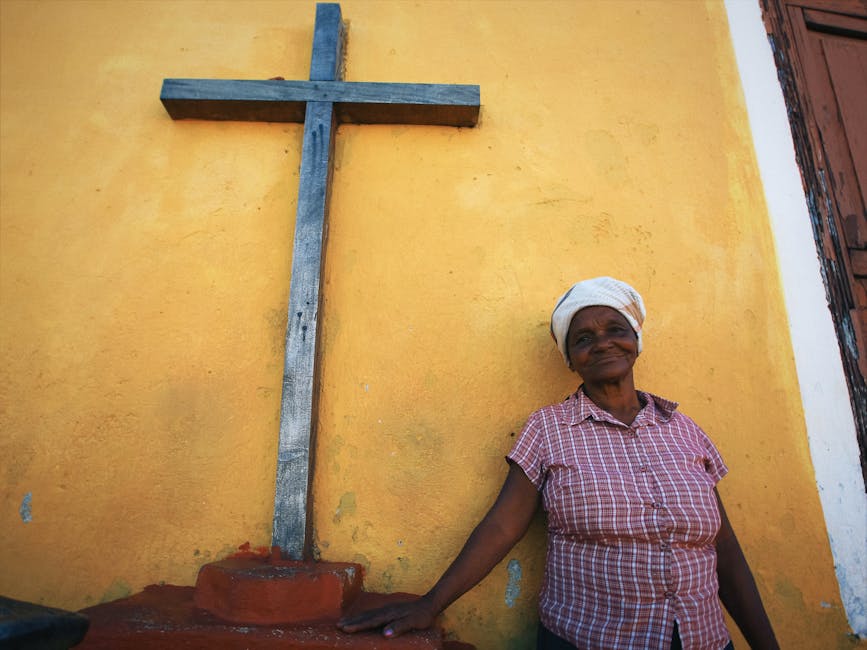The Importance of Building Intergenerational Faith Connections
Religion has always been a fundamental aspect of human society, shaping our beliefs, values, and traditions. In today’s fast-paced world, where technology and globalization have significantly altered the way we interact and communicate, it is more important than ever to preserve and strengthen intergenerational faith connections. These connections not only foster a sense of community and belonging but also play a vital role in passing down religious teachings, practices, and customs to future generations.
The Foundation of Intergenerational Faith Connections

By cottonbro studio via Pexels
Intergenerational faith connections are built on the premise that each generation has a unique role to play in preserving and transmitting religious beliefs and values. The older generation serves as a source of wisdom, guidance, and experience, while the younger generation brings energy, enthusiasm, and new perspectives to the faith community. By fostering meaningful interactions between different age groups, churches, mosques, synagogues, and other religious institutions can create a vibrant and inclusive environment where individuals of all ages can learn from one another.
One of the key benefits of intergenerational faith connections is the opportunity for young people to develop a strong sense of identity and belonging within their religious community. When children and adolescents have positive interactions with older members of their faith community, they are more likely to feel connected to their religious heritage and develop a deep appreciation for their faith. This sense of belonging can provide young people with a strong foundation to navigate life’s challenges and make informed decisions based on their religious values.
Promoting Understanding and Tolerance

By RDNE Stock project via Pexels
Intergenerational faith connections also play a crucial role in promoting understanding and tolerance among different age groups within a religious community. By creating opportunities for dialogue and collaboration between generations, churches, mosques, synagogues, and other religious institutions can foster a spirit of unity and cooperation that transcends generational divides. Older members can share their knowledge and experiences with younger individuals, while the younger generation can offer fresh insights and ideas that challenge traditional beliefs and practices.
Furthermore, intergenerational faith connections help break down stereotypes and misconceptions that often exist between different age groups within a religious community. By promoting open and honest communication, churches, mosques, synagogues, and other religious institutions can create a welcoming and inclusive environment where individuals of all ages feel valued and respected. This sense of mutual respect and understanding is essential for building a strong and cohesive faith community that is able to weather the challenges of modern society.
Passing Down Religious Traditions

By Mehmet Turgut Kirkgoz via Pexels
One of the most significant benefits of building intergenerational faith connections is the ability to pass down religious traditions from one generation to the next. By creating opportunities for older members to mentor and guide younger individuals, churches, mosques, synagogues, and other religious institutions can ensure that key religious teachings, practices, and customs are preserved and upheld. This transmission of religious knowledge is essential for maintaining the integrity and continuity of a faith community over time.
For example, in the Christian tradition, older members of the church play a crucial role in teaching younger individuals about the life and teachings of Jesus Christ, the importance of prayer and worship, and the significance of community service and social justice. By sharing their faith journey and personal experiences, older members can inspire and guide younger individuals as they navigate their own spiritual path. This mentorship and guidance help ensure that the rich traditions of the Christian faith are passed down from one generation to the next.
Building Stronger Families
Intergenerational faith connections also have a positive impact on families, providing them with a sense of stability, support, and guidance in navigating life’s challenges. When families are actively involved in their religious community and participate in intergenerational activities, they are more likely to experience a sense of unity and cohesion that strengthens their bonds and relationships. Parents can rely on the wisdom and support of older members of the faith community, while children and adolescents can benefit from the mentorship and guidance of their elders.
Furthermore, intergenerational faith connections help families instill important values and principles in their children, such as compassion, empathy, and respect for others. By participating in religious rituals, traditions, and practices together, families can create lasting memories and traditions that reinforce their shared beliefs and values. This shared experience of faith can help families develop a strong sense of purpose and meaning that guides them through life’s ups and downs.
Expert Opinions
According to renowned sociologist Robert Wuthnow, “Intergenerational faith connections are essential for the vitality and sustainability of religious communities in the 21st century. By fostering meaningful interactions between different age groups, churches, mosques, synagogues, and other religious institutions can create a sense of continuity and tradition that is essential for passing down religious teachings and practices to future generations.”
Similarly, theologian and author Diana Butler Bass emphasizes the importance of building intergenerational faith connections in today’s diverse and rapidly changing world. She states, “Religious communities that embrace intergenerational relationships are better equipped to adapt to the challenges of modern society and remain relevant to younger generations. By fostering a culture of inclusivity and openness, churches, mosques, synagogues, and other religious institutions can create a welcoming and supportive environment where individuals of all ages can learn, grow, and thrive.”
Conclusion
In conclusion, the importance of building intergenerational faith connections cannot be overstated. These connections are essential for preserving religious traditions, fostering understanding and tolerance, passing down values and beliefs, and strengthening families. By creating opportunities for meaningful interactions between different age groups, churches, mosques, synagogues, and other religious institutions can create a vibrant and inclusive environment where individuals of all ages can learn from one another and grow in their faith.
As we navigate the complexities of the modern world, it is crucial that we prioritize intergenerational faith connections and recognize the valuable role that each generation plays in shaping the future of our religious communities. By building bridges between young and old, we can create a more harmonious and unified faith community that is able to adapt to the challenges of the 21st century and remain relevant and vibrant for generations to come.




